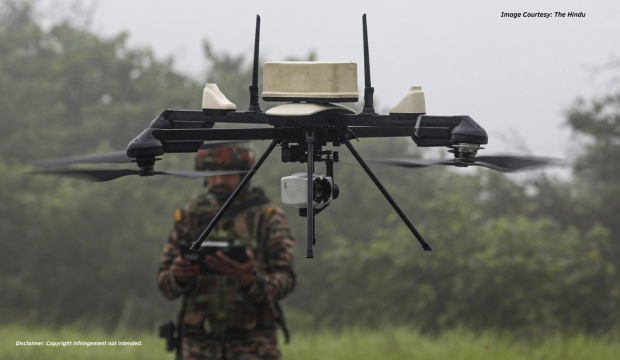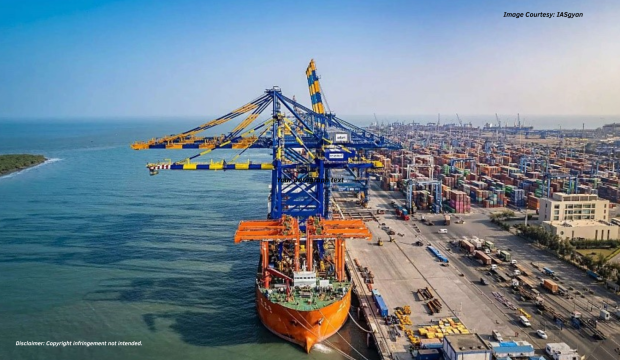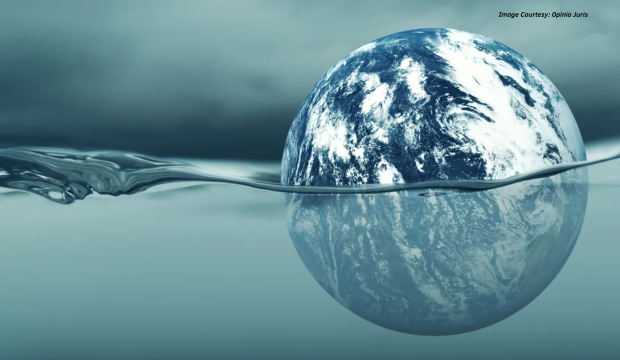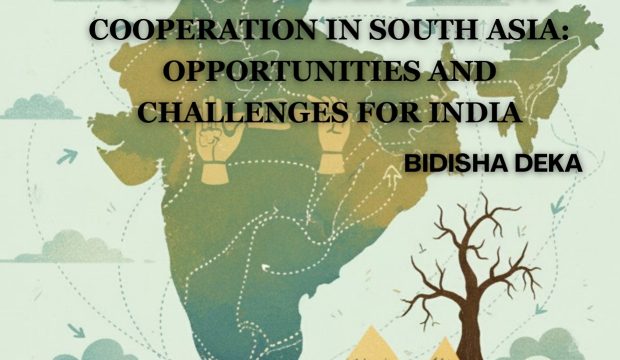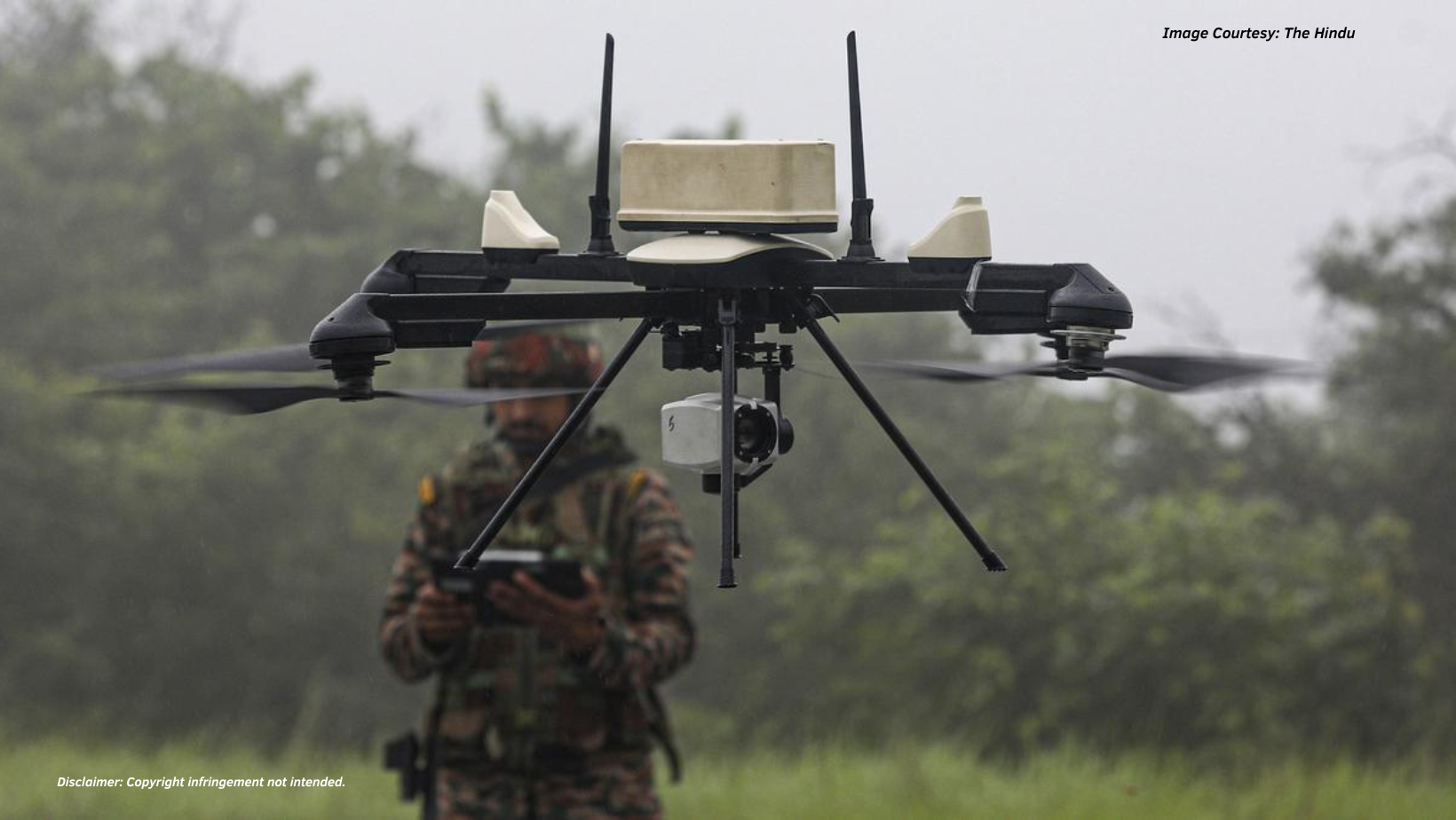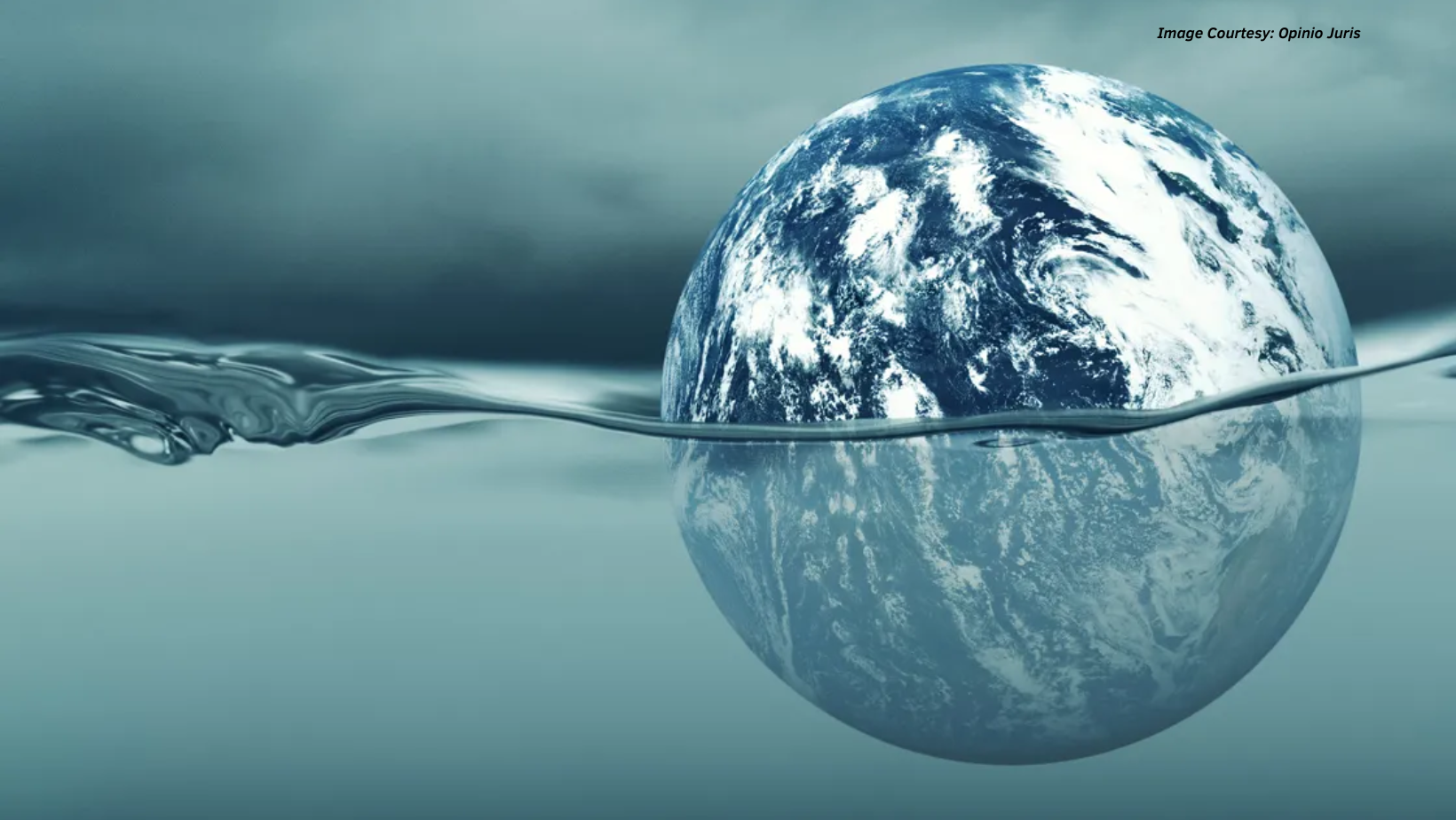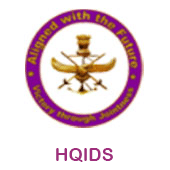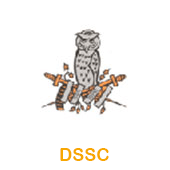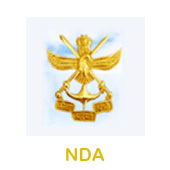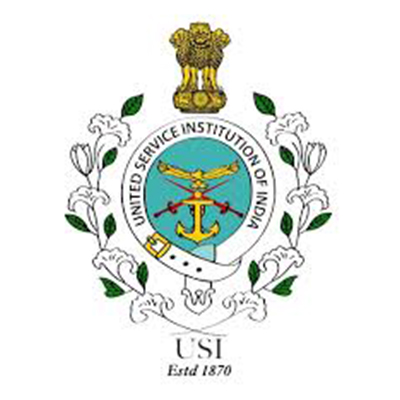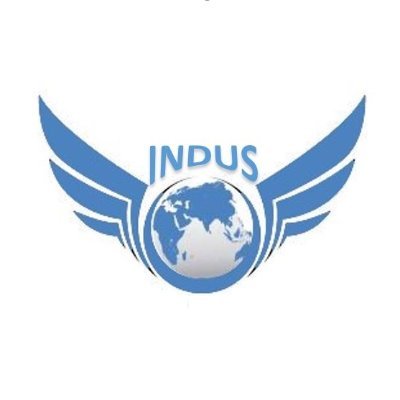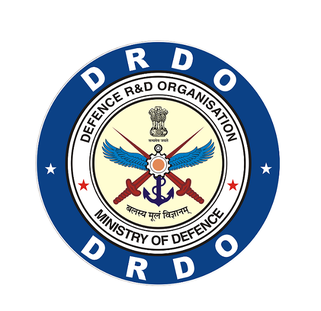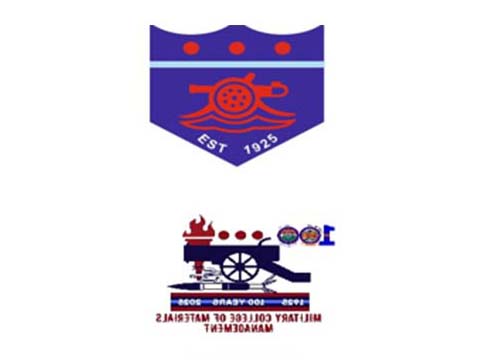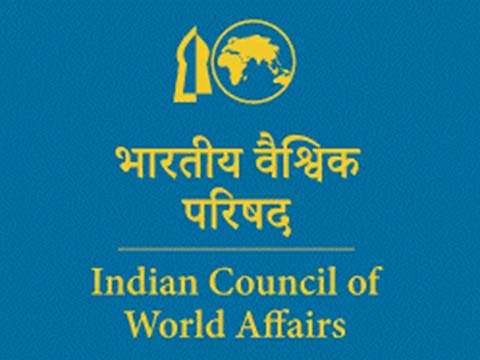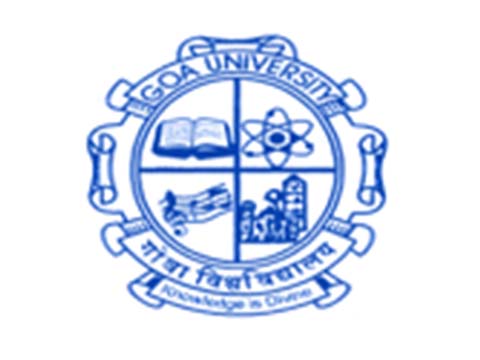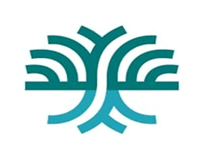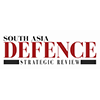Introduction
There have been reports of the Russian Federation[1] diversifying its partnerships in the Bay of Bengal. In the November of 2023, Russia conducted its first Russia-Myanmar naval exercise in the modern history[1], in the Andaman Sea, which was followed by the Russian warships docking at the Chittagong Port, amidst the chaos surrounding the allegations of violation of human rights against the Awami League Government of Bangladesh by the United States[2]. The paper aims to study the significance of Russia’s defence interests in the Junta Government, Myanmar[3], while examining the unpredictable implications of the Russian actions for India.
The Russian Interest
The Myanmar-Russia Maritime Security Exercise (MARUMEX) in the Andaman Sea carries a vital significance for Russia[4]. Myanmar is a member-state of the Association of Southeast Asian Nations (ASEAN)[5] and has been a vital defence partner of Russia since the late 2010s, to an extent where Russia has become their biggest defence partner superseding China[6]. The decision to put efforts into Myanmar instead of other ASEAN countries carries no invisible reasons. Firstly, Myanmar has been facing stringent sanctions from the West since the ascent of the military junta or the State Administration Council (SAC) in February 2021[7]. Due to restrictions on the external currency transactions by the state-owned banks, Russia has been the strongest pillar of support for this country[v]. And at the same time, Russia has been facing sanctions from the west due to the ongoing military conflict with Ukraine as well, a common factor that has accelerated this bonhomie. Secondly, prior to the coup, there had been high-level military visits between the two countries since the appointment of Senior General Min Aung Hlaing as the Commander-in-Chief of Myanmar in 2011. This camaraderie was visible post the coup too, where, with three out of four foreign visits based in Russia, Min Aung Hlaing tried to make a point that the SAC is not completely isolated[9].
This bilateral relationship holds serious challenges for Russia as well. KM Panikkar writes in his book[10], due to the rise in air power, the sea no longer remains indivisible. Although the oceans and seas can help establish a strong foothold over the territory, land warfare techniques determine the results. Recent reports[11] suggest that the Junta Government is losing its hold over the ground, and that the resistance may soon defeat them due to its strong control pertaining to air power. In this case, firstly, to build up on what Panikkar said about the indivisibility of the sea, despite its constant support by the shores, Russia may not be able to save the Junta Government from an imminent defeat. It should not come off as a surprise if the SAC of Myanmar collapses and a consequent civilian government cuts off all the ties with Russia. Secondly, such a strong support requires an efficient resource allocation as well. Geographical distance forms the foundation of logistics challenges too. But through such engagements, Russia is also posturing its credibility as a defence partner despite facing the sanctions itself and positioning itself as a potential defence exporter to the other ASEAN countries as well. Altogether, this is a gamble that carries the potential to turn the Russian ambitions in eastern shores of the Indian Ocean upside down.
This cordial relationship exists during a period when commentators have been calling Russia’s outreach in the ASEAN countries to be on a decline, which, to a certain extent could not be falsified. The defence and strategic outreach have been minimal, except in Vietnam and Myanmar, that received 88 per cent of all military exports of Russia to the ASEAN between 2018 to 2022[12]. Countries like Singapore, Brunei, and the Philippines that have had a natural inclination towards the United States and the West often view Russia in the same aggressive light as that of China. With an independent identity, Russia has the potential to expand its defence market in the other ASEAN members with a well-intentioned excuse of modernising their respective defence forces, because countries are acting on decreasing their dependency on China. But on the other hand, Russia would not like to find itself entangled in the South China Sea Dispute[13], which might upset two of its old partners — Vietnam and China, and repel other potential importers of its defence equipment and strategic tech. Irrespective if Russia succeeds, its naval capabilities and presence in the Indian Ocean Region (IOR) would be enhanced through this outreach with the ASEAN countries, and shall advance Russia’s “Greater Eurasian Vision”[14].
Implications of the Russian Presence for India
Provides a Channel of Safe Outreach in the Horn of Africa: While it may come off as far-fetched, a Russian presence in the Myanmar also augurs well for India in the Western Indian Ocean. India will soon be experiencing the tremors caused by the naval superiority of China[15] — China has been proactive with its outreach in the African countries, whose shores are washed by the waters of the Indian Ocean. With a military facility in Djibouti[16] and amicable relationship with the strategically located island states, China faces no barrier. It has no past colonisation or ongoing territorial disputes with the African countries, and it understood the strategic importance of the Horn of Africa (HoA) much before any other country could. The anti-piracy initiatives led by China in the HoA and Gulf of Aden have been remarkable, gathering it the credibility of a trusted partner[17]. Today, in terms of number of ships and resources[18], the Indian Navy may not be as well-equipped as the Chinese; and despite an increase in the pro-Africa policies[19], this will remain an issue. Russia holds a respectable position in the eyes of non-democratic countries and other states like Mozambique[20] that have a history of internal disturbances. Its presence would complement India’s vision towards multipolarity[21].
Russia acts as a counterbalance to China in the ASEAN: Meanwhile in the South Asian region, a Russian presence should enable India to undertake her ambitions in the ASEAN by providing her the much-needed support. Although Russian investments are independent and taken in consideration of their own interests, they do not contradict the Indian vision of a multipolar world. With the visit of a delegation from Pakistan to Russia for bilateral defence meetings[22], some commentators expressed confusion due to a Russian interest in Pakistan[23], but India’s ties with Russia are not as weak as they think of it to be. The former Awami League Government of Bangladesh is facing myriads of issues with the US establishment, which they claim supported a regime change operation in the country[24]. Anti-west sentiments are on a steep rise in most of the non-natural allies of the US — in such circumstances, countries are pushed towards aligning with another power that can challenge the alleged bully, and in this case, China comes out to be a natural option. With Russia acting as an alternative to China[25], India can heave a sigh of relief, at least to some extent.
Regional stability: In the South Asian region, from Maldives to Bangladesh, almost each country has been facing either economic or political turbulences. A Russian presence, through its strong support and India’s political experience, can enhance the political stability in the region. A stable regional order augurs well for trade, commerce, tourism, and defence cooperation.
Border Security in the Northeast: A stable Myanmar with a strong Russian support would allow India to safeguard its security interests in the northeastern states of the country. Indian states of Arunachal Pradesh, Mizoram, Nagaland, and Manipur their borders with Myanmar —as of now, due to a deteriorating situation, there is a risk of it affecting the states too, but if the SAC of Myanmar is successful in its attempt towards a democratic regime in 2025[26], we may come across stable cordial cooperation across border.
Gaining Advantage in the Andaman Sea: Myanmar’s strategic geographical location cannot be ignored. It shares its borders with China, Laos, and Cambodia, and opens deep into the Andaman Sea. In times of need, India can seek help from the crucial Russian military tech installed in Myanmar, like air and defence systems, which would allow India to secure its eastern maritime borders.
Conclusion
US is not enough to act as a deterrent for China, especially in the non-ASEAN areas of the Indian Ocean. With the history of the Indian Ocean being a proof of its strategic relevance, it is in India’s interests to encourage the naval expansion of Russia in the Indian Ocean. With its naval exercise with Myanmar and supplying the SAC with weapons despite being in a critical situation itself, Russia has come out as a credible defence partner in the region. While the anti-West Indian Ocean countries are unable to gauge the intentions of India and do not wish to be overly dependent on China, a Russian alternative through its expansion will be fruitful for multipolarity in the region. But with Russia accelerating its tilt towards China due to its economic losses, every single decision is a gamble, and a third person can only hope that Russia does not allow China to gain dominance in their partnership.
DISCLAIMER
The paper is author’s individual scholastic articulation and does not necessarily reflect the views of CENJOWS. The author certifies that the article is original in content, unpublished and it has not been submitted for publication/ web upload elsewhere and that the facts and figures quoted are duly referenced, as needed and are believed to be correct.
Endnotes
Deepanjan Roy Choudhary, ‘Russia Steps up Presence in Indian Ocean after Decades; Sends Warships to Myanmar-Bangladesh’, Economic Times, accessed 15 July 2024, https://archive.is/20231202184244/https://economictimes.indiatimes.com/news/defence/russia-steps-up-presence-in-indian-ocean-after-decades-sends-warships-to-myanmar-bangladesh/articleshow/105221603.cms.
[1] Deepanjan Roy Choudhary, ‘Sheikh Hasina Accuses United States of Seeking Regime Change in Bangladesh’, Scroll, accessed 15 July 2024, https://scroll.in/latest/1047161/sheikh-hasina-accuses-us-of-seeking-regime-change-in-bangladesh.
Russia Maritime Studies Institute, Anna Davis, and Ryan Vest, ‘Strategy for the Development of Maritime Activities of the Russian Federation until 2030’, RMSI Research, 30 August 2019, https://digital-commons.usnwc.edu/rmsi_research/6.
- Ibid.
‘About ASEAN – ASEAN Main Portal’, accessed 15 July 2024, https://asean.org/about-asean/.
Nivedita Kapoor, ‘Russia’s Search for Influence in Myanmar’, ORF, accessed 15 July 2024, https://www.orfonline.org/expert-speak/russias-search-for-influence-in-myanmar.
Joaquin Matamis, ‘Many Sanctions, Few Friends: Junta Grapples with Its Grip on Power’, Stimson Center, 11 October 2023, https://www.stimson.org/2023/many-sanctions-few-friends-junta-grapples-with-its-grip-on-power/.
Ian Storey, ‘Myanmar-Russia Relations Since the Coup: An Ever Tighter Embrace | FULCRUM’, Fulcrum, accessed 15 July 2024, https://fulcrum.sg/myanmar-russia-relations-since-the-coup-an-ever-tighter-embrace/.
- Ibid.
KM Panikkar, India and the Indian Ocean (George Allen and Unwin, 1945), https://ignca.gov.in/Asi_data/2745.pdf.
Zsombor Peter, ‘Three Years After Coup, Myanmar’s Junta Losing Ground but Holding On’, Voice of America, 30 January 2024, https://www.voanews.com/a/three-years-after-coup-myanmar-s-junta-losing-ground-but-holding-on/7463497.html.
‘Russia-ASEAN Relations—Strategic Partnership or Strategic Illusion?’, Russia in Global Affairs (blog), accessed 11 August 2024, https://eng.globalaffairs.ru/articles/russia-asean-relations-korolev/.
‘Territorial Disputes in the South China Sea | Global Conflict Tracker’, accessed 11 August 2024, https://www.cfr.org/global-conflict-tracker/conflict/territorial-disputes-south-china-sea.
Mher Sahakyan, ‘Russia’s Greater Eurasian Partnership Strategy: Aims and Prospects’, SSRN Scholarly Paper (Rochester, NY, 29 September 2021), https://doi.org/10.2139/ssrn.4339005.
Darshana Baruah, ‘Surrounding the Ocean: PRC Influence in the Indian Ocean – Carnegie Endowment for International Peace’, Carnegie Endowment, accessed 15 July 2024, https://carnegieendowment.org/posts/2023/04/surrounding-the-ocean-prc-influence-in-the-indian-ocean?lang=en.
Michaël Tanchum, ‘China’s New Military Base in Africa: What It Means for Europe and America’, ECFR, 14 December 2021, https://ecfr.eu/article/chinas-new-military-base-in-africa-what-it-means-for-europe-and-america/.
‘China’s Participation in Anti-Piracy Operations off the Horn of Africa: Drivers and Implications’, accessed 15 July 2024, https://www.cna.org/reports/2009/china-in-anti-piracy-in-horn-of-africa.
‘India Begins Flexing Its Naval Power as China Rivalry Grows | AP News’, accessed 30 July 2024, https://apnews.com/article/india-china-maritime-security-d53925a976e667f275024fa964818c8f.
Abhishek Mishra, ‘India-Africa Maritime Cooperation: The Case of Western Indian Ocean’, ORF, accessed 15 July 2024, https://www.orfonline.org/research/india-africa-maritime-cooperation-the-case-of-western-indian-ocean.
McGregor, ‘Why Mozambique Is Outsourcing Counter-Insurgency to Russia: The Historical Relationship’, James Town, accessed 15 July 2024, https://jamestown.org/program/why-mozambique-is-outsourcing-counter-insurgency-to-russia-the-historical-relationship/.
Swapna Nair, ‘India Aligns with Russia’s Vision of Multipolar World & Global South: Experts’, accessed 15 July 2024, https://sputniknews.in/20240126/india-aligns-with-russias-vision-of-multipolar-world–global-south-experts-6335736.html.
‘Pakistan and Russia Express Interest in Stronger Military Ties in High-Level Defense Meeting’, Arab News, 11 July 2024, https://arab.news/2zct5.
‘The Russia-Pakistan Rapprochement: Should India Worry?’, orfonline.org, accessed 15 July 2024, https://www.orfonline.org/research/the-russia-pakistan-rapprochement-should-india-worry.
Scroll Staff, ‘Sheikh Hasina Accuses US of Seeking Regime Change in Bangladesh’, Scroll.in, 11 April 2023, https://scroll.in/latest/1047161/sheikh-hasina-accuses-us-of-seeking-regime-change-in-bangladesh.
Alexei Muravie, ‘Russia Wants to Be a Power to Be Reckoned with in the Indian Ocean | Lowy Institute’, Lowy Institute, accessed 15 July 2024, https://www.lowyinstitute.org/the-interpreter/russia-wants-be-power-be-reckoned-indian-ocean.
- ‘Myanmar Military Extends State of Emergency by Six Months’, Al Jazeera, accessed 11 August 2024, https://www.aljazeera.com/news/2024/7/31/myanmar-military-government-extends-state-of-emergency-by-six-months.




